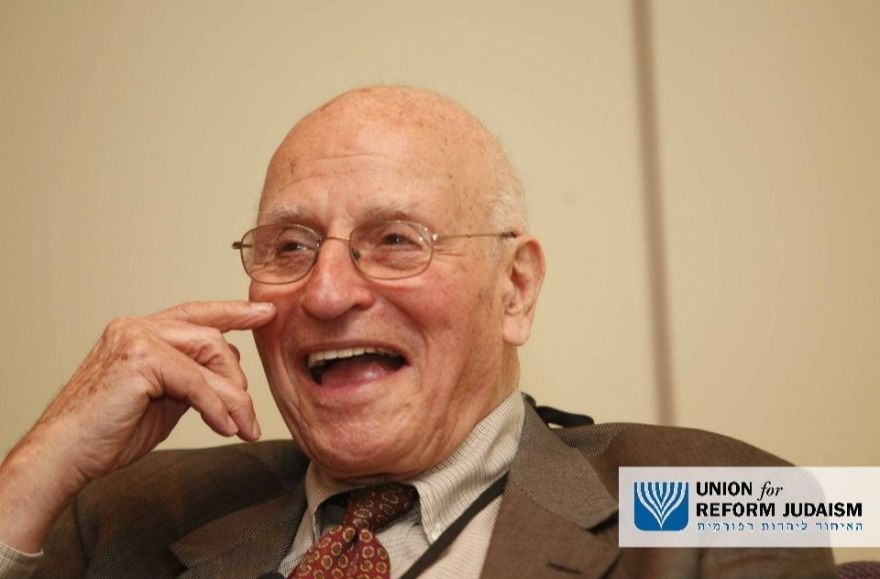I started this blog – A Wondering Jew: Musings From
Newton – in the summer of 2016. In part, I began it as a platform from
which I could speak a bit more freely on matters of public concern, without
having my thoughts and pieces linked to the congregation I was serving at the
time. My writing stream has waxed and waned over these three years, largely
driven by the schedule of my work and family responsibilities. In recent
months, I’ve hardly written on the blog at all. It’s not that I have had
nothing to say, but that life has kept me busy. (And, in truth, I have been
busy with other writing projects.)
The latter two years of this experiment have been entwined
with my decision to step away from full-time congregational work as I set out
to explore new chapters I might create in these years ahead. These have been
two very busy years – each one different from the other.
In early April I read a column by David Brooks in the New
York Times entitled “The Moral Peril of Meritocracy.” His piece
struck me as an earlier piece, he Moral Bucket List,” had in February of 2015.
I quickly realized I was likely reading a tease for a new book. Sure enough! I
learned that his newest book, TheSecond Mountain: The Quest For a Moral Life was going to drop any day.
I quickly devoured the first chapter which he had made available on his website
and I knew that it was, for me, a must-read. Much as The
Road to Character had landed squarely on me where I was in the summer
of 2015, Brooks’ new book seemed eerily timed to my journey. In recent years I
have read several books on what some call “the second-half of life.” Brooks’
new offering joins this growing literature.
In The Second Mountain, Brooks writes, “I often find
that their life has what I think of as a two-mountain shape. [People get] out
of school, [begin] their career or started a family, and identified the
mountain they thought they were meant to climb: I’m going to be a cop, a
doctor, an entrepreneur, what have you. On the first mountain, we all have to
perform certain life tasks: establish an identity, separate from our parents,
cultivate our talents, build a secure ego, and try to make a mark in the world .
. . The goals on that first mountain are the normal goals that our culture
endorses—to be a success, to be well thought of, to get invited into the right
social circles, and to experience personal happiness.” Brooks goes on to note that, “Some people get
to the top of that first mountain, taste success, and find it…unsatisfying. ‘Is
this all there is?’ they wonder. They sense there must be a deeper journey they
can take . . . [Some] “realize, ‘Oh, that first mountain wasn’t my mountain
after all. There’s another, bigger mountain out there that is actually my
mountain.’” Brooks states that, in his
mind, “The second mountain is not the opposite of the first mountain. To climb
it doesn’t mean rejecting the first mountain. It’s the journey after it.” He proceeds
to extend his metaphor, writing that, “If the first mountain is about building
up the ego and defining the self, the second mountain is about shedding the ego
and losing the self. If the first mountain is about acquisition, the second
mountain is about contribution. If the first mountain is elitist—moving up—the
second mountain is egalitarian—planting yourself amid those who need, and
walking arm in arm with them.”
Brooks states, “You don’t climb the second mountain the way
you climb the first mountain. You conquer your first mountain. You identify the
summit, and you claw your way toward it. You are conquered by your second
mountain. You surrender to some summons, and you do everything necessary to
answer the call and address the problem or injustice that is in front of you.
On the first mountain, you tend to be ambitious, strategic, and independent. On
the second mountain you tend to be relational, intimate, and relentless.”
In Brooks’ analysis, I found an expression of some of the
unsettled nature of the past years for me along my journey. As I set out from
congregational work in the summer of 2017, I didn’t yet know where the journey
would lead me. I knew I wanted to teach. I knew I wanted to write. And, I knew
I wanted to organize my life differently than I had over the three-plus decades
in which I worked hard in congregational settings, often setting aside family
time and relationships. I have no
regrets about my years in congregational life. I’d be less-than-honest if I
said I have no regrets about how I balanced my life in and out of work. Yet,
over the years I have learned I’m not alone in that. Brook’s The Second
Mountain offering helped frame that differently.
My journey continues. I am teaching and learning. I am
spending more time with my family. And yet, there is still a restlessness which
I am hoping to address in the next chapter of my journey.
Sometime later this year Laura and I will “downsize” our
lives, as so many do in our stage of life. This will lead us away from living
in Newton, though Newton will always be home. As we watch our now 27+ month-old
grandson grow we know that we will not go far. Indeed, the greater Boston-area
will remain home. As summer dawns, I am looking forward to more time to write
as my schedule slows down. At the same time, as I contemplate a new town in
which we will make our home, I realize it’s an opportune moment to re-launch my
blog, and I truly hope, my writing practice which I’d especially grown to enjoy
after my summers in the Kenyon College Beyond Walls – Spiritual Writing
workshops.
So, the “Wondering Jew” will keep wondering, and I hope,
have something worthwhile to say. Maybe not. However, as I look ahead to wherever
my next mountain will be and what it will hold, I look forward to continuing my
journey – as a husband, a father, a grandfather, a friend, a student, a teacher, and a
rabbi.
Thanks for peeking in on my musings from time-to-time.
Peace!







